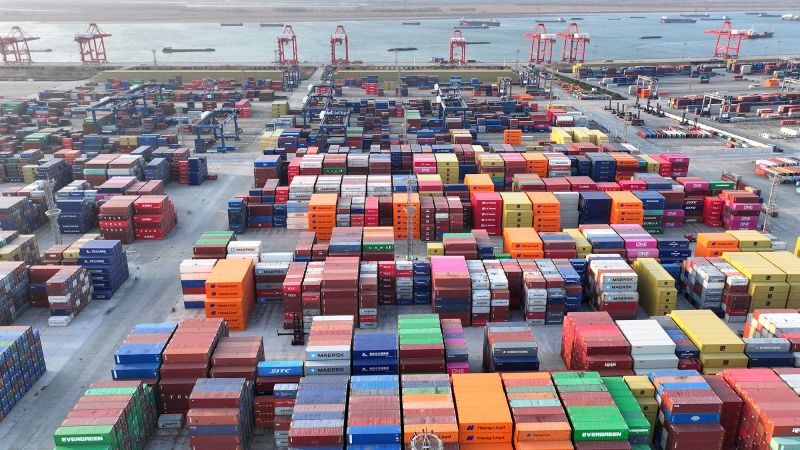Hong Kong
CNN
—
President Donald Trump unveiled 54% tariffs on all Chinese imports into the United States Wednesday as part of his sweeping “Liberation Day” reset of American trade global policy.
The tariffs on China, the second top importer to the US behind Mexico, are poised to push a major reset of relations and escalate a trade war between the world’s two largest economies.
China blasted the move and vowed to “resolutely take countermeasures to safeguard its own rights and interests.”
“The United States has drawn the so-called ‘reciprocal tariffs’ based on subjective and unilateral assessments, which is inconsistent with international trade rules and seriously damages the legitimate rights and interests of relevant parties. It is a typical unilateral bullying practice,” China’s Ministry of Commerce said in a statement Thursday morning Beijing time.
“China urges the United States to immediately cancel its unilateral tariff measures and properly resolve differences with its trading partners through equal dialogue.”
Wednesday’s announcement adds 34% “reciprocal” tariffs to existing 20% duties on all Chinese imports to the US. Since returning to power in January, Trump had already levied two tranches of 10% additional tariffs on all Chinese imports, which the White House said was necessary to stem the flow of illicit fentanyl from the country to the US.
To skirt existing tariffs, some Chinese companies have shifted production to other Asian countries. But Trump’s new reciprocal tariffs on other Asian nations announced Wednesday will hurt China, too: Vietnam will face levies of 46% and Cambodian goods will be tariffed at 49%.
Trump unveiled the measures during an address in the White House’s Rose Garden, where he separately announced an additional 10% duties on all imports to the US and a host of country-specific measures that hit Asian countries particularly hard.
The 54% minimum tariffs that Trump imposed on China are higher than many analysts’ expectations and reach close to the upwards of 60% levies that he had threatened to impose on the country during his election campaign.
Speaking to Russian media in Moscow earlier this week ahead of the announcement, Chinese Foreign Minister Wang Yi said Beijing would “counterattack” if the US continues to engage in “blackmail” over tariffs.
“‘America First’ should not be American bullying, and it should not build its own interests on the basis of damaging the legitimate rights and interests of other countries,” Wang told Russian state media, according to Chinese state broadcaster CCTV.
China responded swiftly to the previous rounds of tariffs imposed by the Trump administration this year, slapping its own targeted duties on US imports including certain agriculture products and fuels.

